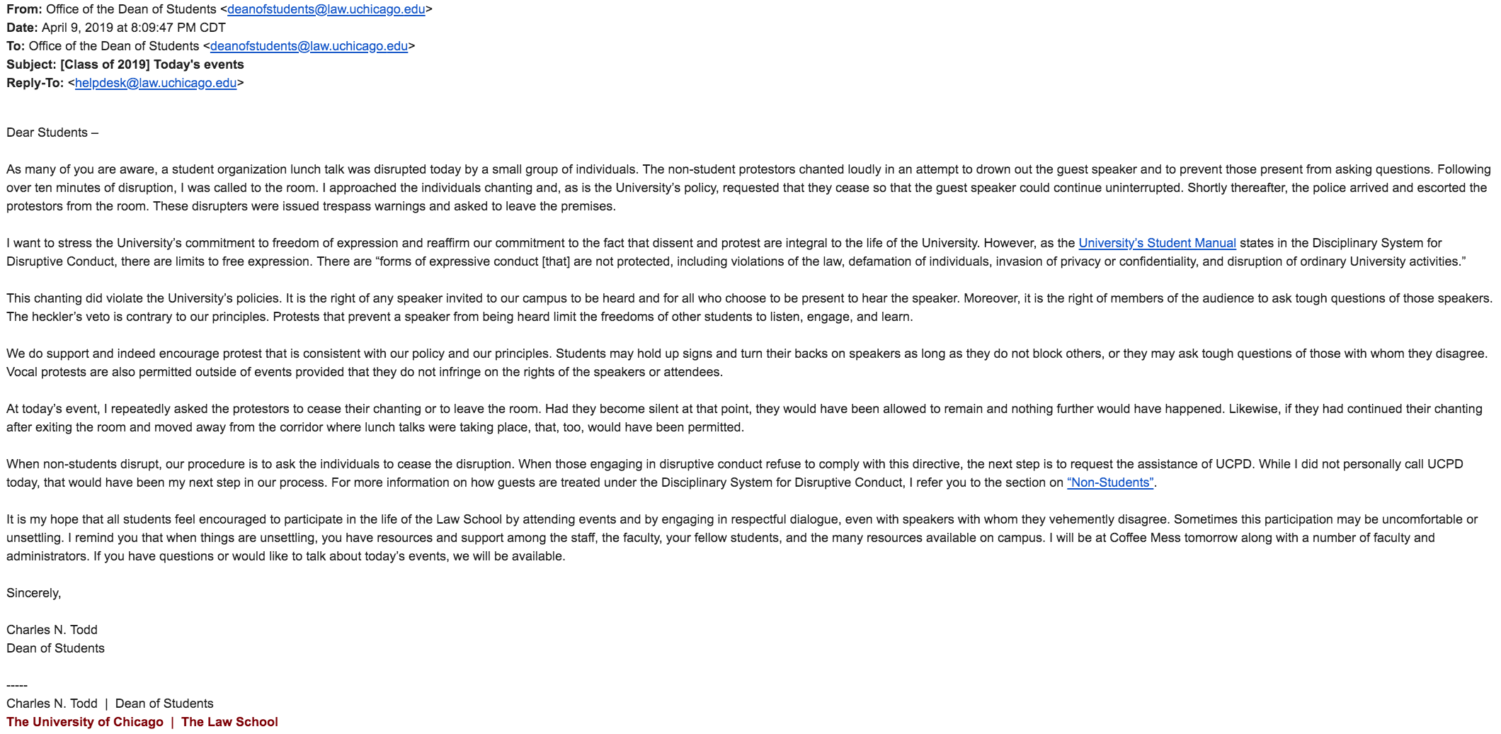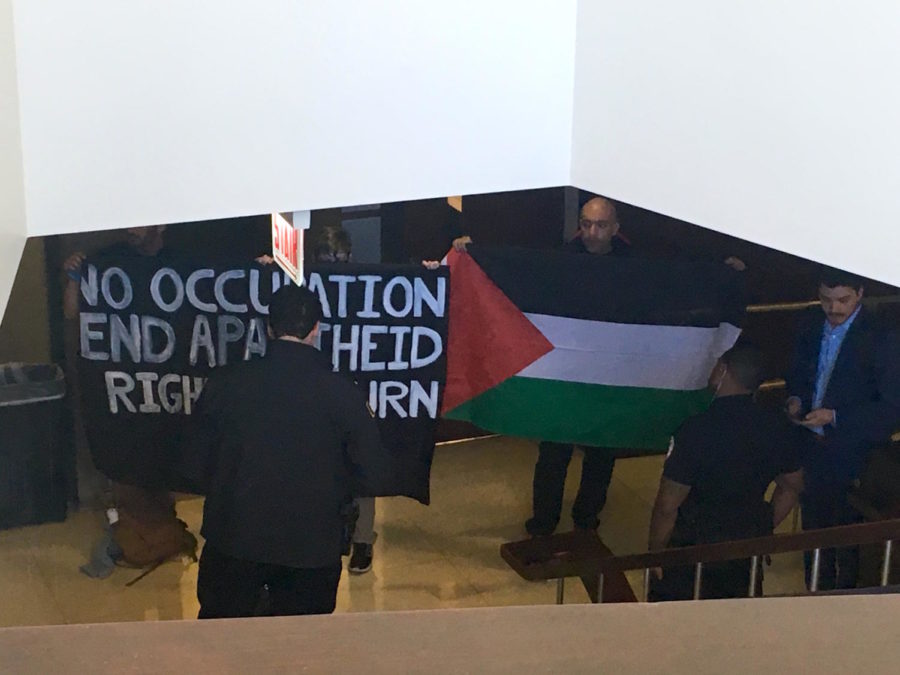Pro-Palestinian protesters interrupted a talk on Tuesday by visiting professor Eugene Kontorovich, who was speaking about anti–Boycott, Divestment, and Sanctions (BDS) laws and their application under the First Amendment. A Law School administrator repeatedly asked the protesters, who were not students at the University, to leave the room. They were eventually escorted out by University of Chicago Police Department (UCPD) officers.
The administrator, Law School Dean of Students Charles Todd, confirmed that he did not call UCPD. It is currently unclear who did.

Several students who witnessed the incident expressed frustration with the presence of police officers in the Law School and questioned the University’s application of its free speech policy by allowing the protesters to be removed. In an e-mail to Law School students following the incident, Todd said that because the protesters disrupted the talk, they “did violate the University’s policies” regarding free expression and were rightly removed in accordance with them.
Kontorovich is a law professor at George Mason University and an ardent supporter for anti–BDS legislation. The protesters—who identified themselves as part of Jewish Voice for Peace—entered the public event and sat in the back of the room, according to law students attending the talk.
The protesters handed out pro–BDS literature calling for political action in response to the Israeli-Palestinian conflict. Minutes later, several more protesters entered with a Palestinian flag and and a sign that read “No occupation, end apartheid, right of return.” They began chanting, “Free, free Palestine, protesting is not a crime.”
Todd then arrived and repeatedly asked the protesters to stop chanting or to leave the room, he said in his e-mail.
The UCPD then arrived on the scene to remove the protesters from the event. Three of the protesters were escorted from the room by UCPD officers and were held outside the doors of the event while their license information was recorded. During this time, protesters displayed continued to hold the Palestinian flag and the sign.
The protesters were then issued trespass warnings, according to Todd’s email, and asked to leave the Law School.
Following the event, Kontorovich tweeted, “How is an effective persuasion to shout over speakers with slogans unrelated to their topic? Maybe I am missing a trick, but it seems they made the anti-BDS point far more eloquently than I could.”
How is an effective persuasion to shout over speakers with slogans unrelated to their topic? Maybe I am missing a trick, but it seems they made the anti-BDS point far more eloquently than I could. https://t.co/tYZspnQ8YG
— Eugene Kontorovich (@EVKontorovich) April 9, 2019
A first-year law student who spoke with Todd following the protest expressed his frustration with the UCPD presence in the Law School. He said that after talks in which administrators promised to reform their protocol, reforms were either not put in place or not carried out.
“Our takeaway was that [Todd] endorsed what happened,” the student said.
The student went on to say that given the nature of Kontorovich’s talk on the First Amendment, he felt as though, “This runs counter to the fact that all these lunch talks are open to the public, and that we are reportedly told that we should fight bad speech with good speech.”
In his e-mail, Todd explained why the protesters were allowed to be removed by UCPD officers under University policies.
“As the University’s Student Manual states in the Disciplinary System for Disruptive Conduct, there are limits to free expression. There are ‘forms of expressive conduct [that] are not protected, including violations of the law, defamation of individuals, invasion of privacy or confidentiality, and disruption of ordinary University activities.’
“This chanting did violate the University’s policies. It is the right of any speaker invited to our campus to be heard and for all who choose to be present to hear the speaker. Moreover, it is the right of members of the audience to ask tough questions of those speakers. The heckler’s veto is contrary to our principles. Protests that prevent a speaker from being heard limit the freedoms of other students to listen, engage, and learn.”
Todd also made a distinction between cases of protests by students versus by protesters unaffiliated with the University: “When non-students disrupt, our procedure is to ask the individuals to cease the disruption. When those engaging in disruptive conduct refuse to comply with this directive, the next step is to request the assistance of UCPD. While I did not personally call UCPD today, that would have been my next step in our process.”
Update April 10, 1:20 p.m.: The University provided the following statement on Wednesday.
“Protesters who were not affiliated with the University disrupted an event at the Law School and refused to leave in response to several requests. Officers with UCPD arrived at the Law School in response to a call. The UCPD officers again asked the individuals to leave and gave them trespass warnings, after which they left on their own.
“As part of our commitment to free expression, the University is fundamentally committed to upholding the rights of protesters to express a wide range of views. University policies also make it clear that demonstrations cannot prevent others from speaking or from hearing a speaker.”









